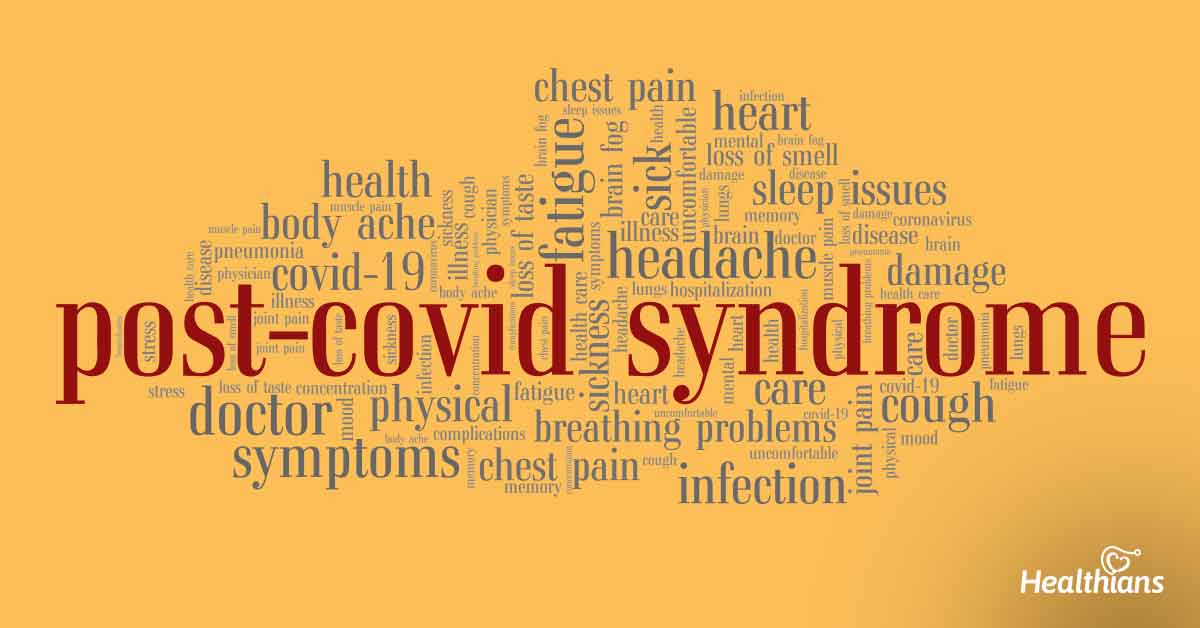Contributed by: Healthians Team
Recovering from Covid-19 may not be the end of the battle for most people. Many people in the world are suffering even after recovering from heart-related issues post-COVID-19, though the reasons are not fully understood. They are experiencing post-Covid symptoms like difficulty in breathing, weakness, fatigue, cough, headaches, depression, chest pain, organ damages, and many more.
Research findings have indicated that people who have recovered from Covid continue to face lingering heart problems like heart palpitations or irregular heartbeat. What is more worrying is that in some cases patients with no pre-existing history of cardiac ailment reportedly experience sudden palpitations, despite the fact that they lived a healthy lifestyle.
Heart palpitation means that the heart is beating too fast or rapidly. The condition can cause a rapid heartbeat and dizziness and fatigue, especially when the sufferer changes position. Needless to say, the condition of a pounding heart is unsettling and frightening.
The precise causes are still being identified. And they could be both direct as well as indirect. Many causes may be attributed to the condition, like stress, dehydration, anxiety, pregnancy, anemia, fever, smoking, low blood pressure. It can be asymptomatic of heart problems too and it is also been observed in Covid patients after recovery. Most heart palpitations may not be a cause of concern and need no evaluation. However, in certain cases, they can be an indication of severe heart diseases needing medical attention. It is important that you spot early signs of trouble and seek immediate medical attention if they manifest with symptoms like:
- Shortness of breath
- Spells of dizziness
- Pain in the Chest
- Fainting
Simple Tips to Address Heart Palpitations at Home
There are some tips that can be followed at home for a healthy heart and they are beneficial to treat heart palpitations:
- Food to be avoided: – Processed food, oily and spicy foods should be stopped. Avoid drinking alcohol, smoking, nicotine, caffeine, and cocaine since they can affect the working of the heart and can cause palpitations.
- Food to include in diet: – Consume a high fiber food like pulses, grain cereals, and whole gram. Add nuts, legumes, juices, fresh fruit, and vegetables to your meal.
- Stay hydrated:- Dehydration can because of heart palpitation. When you observe your heart is beating too fast and you are having dark yellow urine then consume a lot of fluids and drink plenty of water. You may also splash some cold water on your face.
- Practice relaxation techniques every day:- Practice some yoga asanas, walking, relaxation exercises, and meditation. They are beneficial in getting relief from heart palpitations and avoid taking any kind of stress because stress can worsen the palpitations. Do take proper rest and sleep at least 8 hours.
- Deep breathing: – Take deep breaths to get some relief. You can also perform an activity in which just sit in a cross-legged position and start breathing through your nose then breathe out through your mouth.
- Maintain your cholesterol: – Regularly check your cholesterol level and blood pressure. Prefer to have a low cholesterol diet.
It is important to remember that the path to recovery isn’t a smooth highway. It is more akin to a bumpy ride across the country road. COVID-19 will continue to have an effect on our lives for a while longer. The drive back to normal life will be long and slow. So approach these unprecedented times with resilience even after recovering from the deadly disease.




